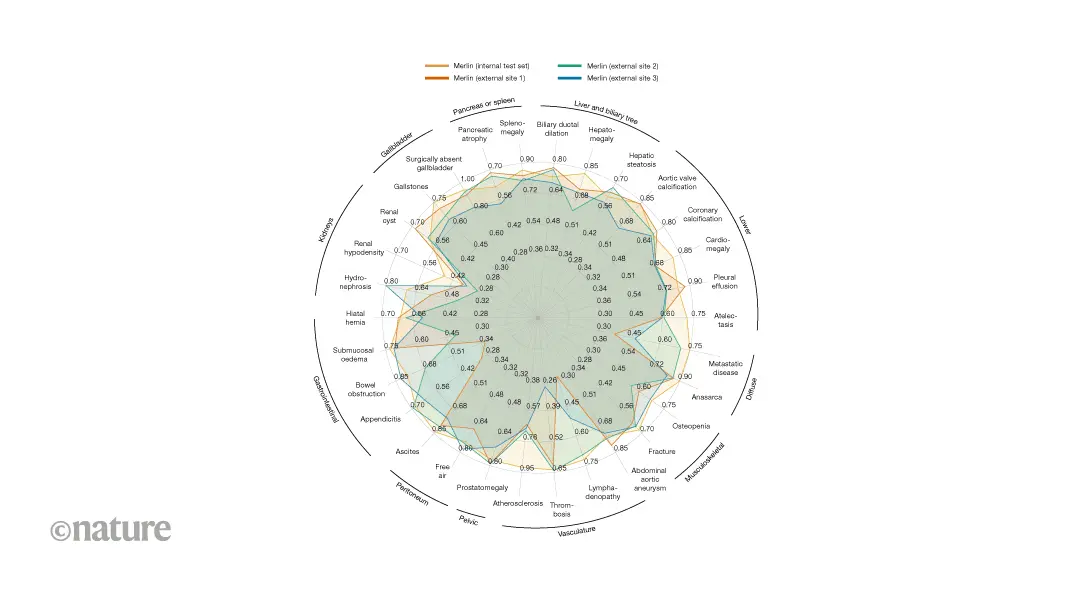AI-Generated Music Scam: Musician Arrested for $1 Million Streaming Fraud
5 Sources
5 Sources
[1]
AI music producer accused of bilking music streamers for millions
(NewsNation) -- A North Carolina man has been charged with defrauding music streaming services to the tune of $10 million in royalty payments for using artificial intelligence to not only make music but to "listen" to those songs. Michael Smith, 52, "played upon the integrity of the music industry by a concerted attempt to circumvent the streaming platforms' policies," said FBI Acting Assistant Director Christie M. Curtis. Smith, of Cornelius, N.C., was arrested Wednesday and charged with wire fraud conspiracy, wire fraud, and money laundering. Each count carries a maximum sentence of 20 years in prison, but a judge would determine the actual sentence should Smith be convicted. Music streaming platforms such as Spotify, Amazon Music and Apple Music pay royalties to composers, musicians and those who hold the rights to songs. The payments are based on how many times the songs are streamed by people around the world. Federal prosecutors say Smith first used AI bots to continually stream his own songs, which yielded royalties of more than $1.2 million a year. That reflects more than 660,000 streams per day. But the streaming services' anti-fraud apps discovered the strategy. Smith then allegedly expanded the scheme on the assumption that a billion fake streams of tens of thousands of songs would be more difficult to detect since each song was being streamed fewer times. The Justice Department statement says that Smith went on to create hundreds of thousands of songs with randomly created titles and artist names, as well as thousands of bots that were "hard coded" to stream those songs billions of times. He also allegedly used VPNs to disguise the fact that, while it appeared that all the "creating" and "listening" was worldwide, it actually happened at his house.
[2]
Man Created AI Songs And Used Bots To Collect $10M In Royalty Payments: Indictment
Computers played the AI-generated songs billions of times on various streaming platforms. A United States man is accused in the first criminal case involving collecting royalties on bogus music streams using AI-produced music and bots to rack up billions of fake streams. Michael Smith, 52, is accused of a scheme to create hundreds of thousands of songs with artificial intelligence and the use of automated "bot" programs to repeatedly stream the songs on platforms like Apple Music, Amazon Music, Spotify and YouTube Music. Federal prosecutors claim he collected more than $10 million in royalty fees for the fake traffic. Smith faced a three-count criminal indictment in a North Carolina federal court on Thursday. Each time a song is streamed through one of the streaming platforms, the songwriter who composed the song, the musician who performed it and in certain cases other rights holders, are entitled to small royalty payments. The indictment states that royalty payments are made proportionately to musicians and songwriters, so that streaming fraud diverts funds from musicians and songwriters whose songs were legitimately streamed by real consumers. Smith estimated that he could use the bot accounts to generate approximately 661,440 streams per day, yielding annual royalties of $1,207,128, according to prosecutors. They say he spread his automated streams across thousands of songs to avoid anomalous streaming to any single song to avoid suspicions by the streaming platforms about manipulation. Prosecutors say Smith started working with an unnamed CEO of an AI music company and a music promoter in 2018 to create hundreds of thousands of AI-generated songs for the scheme. The music company allegedly produced thousands of what it called "instant music" songs a week. "Smith stole millions in royalties that should have been paid to musicians, songwriters, and other rights holders whose songs were legitimately streamed, U.S. Attorney Damian Williams claimed. "It's time for Smith to face the music." Smith, of Cornelius, North Carolina, is charged with wire fraud conspiracy, which carries a maximum sentence of 20 years in prison; wire fraud, which carries a maximum sentence of 20 years in prison; and money laundering conspiracy, which carries a maximum sentence of 20 years in prison.
[3]
Musician Arrested for Using AI Music and Bots to Swindle Royalties From Spotify
A musician in North Carolina has been arrested for creating hundreds of thousands of AI-generated songs in a scheme to swindle royalties from music-streaming services, including Spotify and Apple Music. Michael Smith allegedly received more than $10 million in royalties from the streaming services by posting AI-generated songs and then using thousands of automated bots to play the tunes, according to federal investigators. The Justice Department says this is the first criminal case involving "artificially inflated music streaming." The scheme exploited the payouts artists or producers get each time someone streams their songs. It's usually only between $0.003 and $0.004 per stream, so songs need to receive tens of millions of streams to generate substantial royalties. The DOJ notes that "although Smith was himself a musician and had access to a small catalog of music that he owned, that catalog was not nearly large enough for Smith's streaming fraud." Smith allegedly resorted to generating fake user clicks starting in 2017, even though the music streaming services strictly forbid such manipulation. He acquired thousands of email accounts, mostly from vendors who sell them in bulk, and used them to create accounts on the music-streaming services. In addition, he paid at least $1.3 million to secure a large number of debit card numbers, which could be assigned to each bot music-streaming account. At one point, Smith had as many as 10,000 active bot accounts, the indictment claims. "Signing up such a voluminous number of Bot Accounts on the Streaming Platforms was labor-intensive, and Smith paid individuals located abroad as well as co-conspirators located in the United States to do the data entry work of signing up for the bot accounts." To avoid raising scrutiny, Smith spread out the fake plays across many songs. He sought to generate a billion streams over a large catalog spanning tens of thousands of songs to make the traffic look organic. That led Smith to email his co-conspirators in December 2018: "We need to get a TON of songs fast to make this work around the anti-fraud policies these guys are all using now," according to the indictment. Starting in 2018, Smith began working with the CEO of an unidentified AI music company to pump out hundreds of thousands of AI-generated songs he could feed into his elaborate scheme. By June 2019, the bots and AI songs were earning Smith $110,000 per month. It's not entirely clear how federal investigators caught on to the scheme. But by 2018, at least some music distributors began suspecting Smith was committing streaming abuse and threatened to pull his songs from their platforms. The Justice Department also noted that the songs he uploaded usually came with file names that "were a randomized list of letters and numbers, such as 'n_7a2b2d74-1621-4385-895d-b1e4af78d860.mp3.'" He'd also name many of his AI-generated tunes with similar language, such as "Zygophyceae," "Zygophyllaceae," "Zygophyllum," "Zygopteraceae," "Zygopteris," and "Zygopteron," another sign of manipulation. Smith was arrested on Wednesday and faces 60 years in prison if he's convicted of all charges, which include wire fraud conspiracy, wire fraud, and money laundering.
[4]
Man Arrested for Creating Fake Bands With AI, Then Making $10 Million by Listening to Their Songs With Bots
An alleged scammer has been arrested under suspicion that he used AI to create a wild number of fake bands -- and fake music to go with them -- and faking untold streams with more bots to earn millions in ill-gotten revenue. In a press release, the Department of Justice announced that investigators have arrested 52-year-old North Carolina man Michael Smith, who has been charged with a purportedly seven-year scheme that involved using his real-life music skills to make more than $10 million in royalties. Indicted on three counts involving money laundering and wire fraud, the Charlotte-area man faces a maximum of 20 years per charge. With bona fide artists struggling to make ends meet via music streaming services, Smith allegedly worked with the help of two unnamed accomplices -- a music promoter and the CEO of an AI music firm -- to create "hundreds of thousands of songs" that he then "fraudulently stream[ed," the indictment explains. "We need to get a TON of songs fast," Smith emailed his alleged co-conspirators in late 2018, "to make this work around the anti-fraud policies these guys are all using now." Around that same time, the CEO of the AI music company, which also has not been named, began allegedly providing the musician with "thousands of songs" on a weekly basis. Smith in turn would then use automation to generate tons of listens for the crappy tunes. "Keep in mind what we're doing musically here," the CEO wrote in an email to the defendant that the DOJ released, "this is not 'music,' it's 'instant music' ;)." The songs that the AI CEO provided to Smith originally had file names full of randomized numbers and letters such as "n_7a2b2d74-1621-4385-895d-b1e4af78d860.mp3," the DOJ noted in its detailed press release. When uploading them to streaming platforms, including Amazon Music, Apple Music, Spotify, and YouTube Music, the man would then change the songs' names to words like "Zygotes," "Zygotic," and "Zyme Bedewing," whatever that is. The artist naming convention also followed a somewhat similar pattern, with names ranging from the normal-sounding "Calvin Mann" to head-scratchers like "Calorie Event," "Calms Scorching," and "Calypso Xored." To manufacture streams for these fake songs, Smith allegedly used bots that stream the songs billions of times without any real person listening. As with similar schemes, the bots' meaningless streams were ultimately converted to royalty paychecks for the people behind them. When reached by the New York Times regarding the extremely well-documented allegations of fraud and streaming platform manipulation, Smith issued a hilariously affronted statement. "This is absolutely wrong and crazy!," the NC man rebutted. "There is absolutely no fraud going on whatsoever! How can I appeal this?"
[5]
Musician charged with wire fraud after using thousands of bots to stream AI music to earn millions in royalties
Humanoid AI robot working at the radio station (Image credit: Shutterstock) A U.S. grand jury has formally charged 52-year-old Michael Smith with conspiracy to commit wire fraud, wire fraud, and money laundering after allegedly buying AI-generated music, posting them on streaming platforms, and then using thousands of bots to stream his posts. This act allowed him to earn millions of dollars in royalties from 2017 through 2024. According to the unsealed indictment from the Justice Department, Mr. Smith claimed in February 2024 that his "existing music has generated at this point over 4 billion streams and $12 million in royalties since 2019." This meant he made approximately $2.4 million annually by buying AI-generated tracks, uploading them on various streaming platforms like Spotify, Apple Music, and YouTube Music, and creating bots that allowed his tracks to gain millions of fake streams. With royalty payments often falling at less than one cent per stream, Mr. Smith likely garnered over 240 million streams yearly, most of them through bots. The music industry, in general, prohibits artificially boosting streams as it will negatively impact artists and musicians, where the money that the streaming company should pay them is funneled into accounts that use bots to increase the listening count of their tracks artificially. The act is similar to the payola scandal in the 1950s, where DJs and radio stations received money from publishers to give their songs more airtime, artificially inflating their popularity to drive record and album sales. The only difference today is that radio stations have since been replaced by streaming platforms, DJs by user accounts, and artists by AI. Michael Smith's acts were severe enough for the FBI to get involved during the investigation. Christie M. Curtis, the Acting Assistant Director in Charge of the New York FBI Field Office, said, "Michael Smith allegedly produced hundreds of thousands of songs with artificial intelligence and utilized automatic features to repeatedly stream the music to generate unlawful royalties to $10 million. U.S. Attorney Damian Williams also said, "Through his brazen fraud scheme, Smith stole millions in royalties that should have been paid to musicians, songwriters, and other rights holders whose songs were legitimately streamed. Today, thanks to the work of the FBI and the career prosecutors of this Office, it's time for Smith to face the music." Smith was arrested last September 4, 2024, and now faces up to a maximum of 20 years imprisonment for each charge if found guilty.
Share
Share
Copy Link
A musician has been arrested for allegedly using AI-generated music and thousands of bots to defraud music streaming platforms of over $1 million in royalties. This case highlights the growing concerns about AI's potential for abuse in the music industry.

The Scam Unveiled
In a shocking revelation, a musician has been arrested for orchestrating a sophisticated fraud scheme involving artificial intelligence (AI) and music streaming platforms. The individual, identified as Jose Medina Teran, allegedly used AI-generated music and an army of bots to manipulate streaming numbers and swindle over $1 million in royalties
1
.The Mechanics of the Fraud
Teran's modus operandi involved creating thousands of fake artist accounts and uploading AI-generated music to popular streaming platforms. He then employed a vast network of bots to repeatedly stream these tracks, artificially inflating play counts and, consequently, royalty payments
2
.The scheme was intricate, with Teran allegedly using over 30 different streaming accounts to upload music and over 65,000 bots to stream the content. This massive operation allowed him to accumulate millions of plays across various platforms
3
.The Scale of the Operation
The fraud's scale is staggering, with reports suggesting that Teran's fake artists garnered over 1.5 billion streams. This resulted in royalty payments exceeding $1 million, which Teran collected over several years
4
.Legal Consequences
Teran now faces serious legal repercussions for his actions. He has been charged with wire fraud, which carries a maximum sentence of 20 years in prison. The case is being prosecuted by the U.S. Attorney's Office for the Eastern District of New York
5
.Industry Implications
This case has sent shockwaves through the music industry, raising concerns about the potential misuse of AI in music production and distribution. It highlights the vulnerabilities in current streaming systems and the need for more robust fraud detection mechanisms
1
.Related Stories
Streaming Platforms' Response
Major streaming platforms, including Spotify and Apple Music, have yet to comment specifically on this case. However, the incident is likely to prompt these companies to reevaluate and strengthen their fraud detection algorithms and policies regarding AI-generated content
2
.The Future of AI in Music
While this case demonstrates the potential for AI abuse in the music industry, it's important to note that AI also has legitimate and innovative applications in music creation and production. The challenge for the industry moving forward will be to harness the benefits of AI while implementing safeguards against fraudulent activities
3
.Broader Implications for Digital Content
This incident raises broader questions about the authenticity and value of digital content in an age where AI can generate music, art, and text indistinguishable from human-created works. It underscores the need for new frameworks to verify and attribute digital creations in various creative industries
4
.References
Summarized by
Navi
[4]
Related Stories
Recent Highlights
1
Trump bans Anthropic from government as AI companies clash with Pentagon over weapons and surveillance
Policy and Regulation

2
Nvidia pulls back from OpenAI investment as Jensen Huang cites IPO plans and complex dynamics
Technology

3
Samsung unveils Galaxy S26 lineup with Privacy Display tech and expanded AI capabilities
Technology








